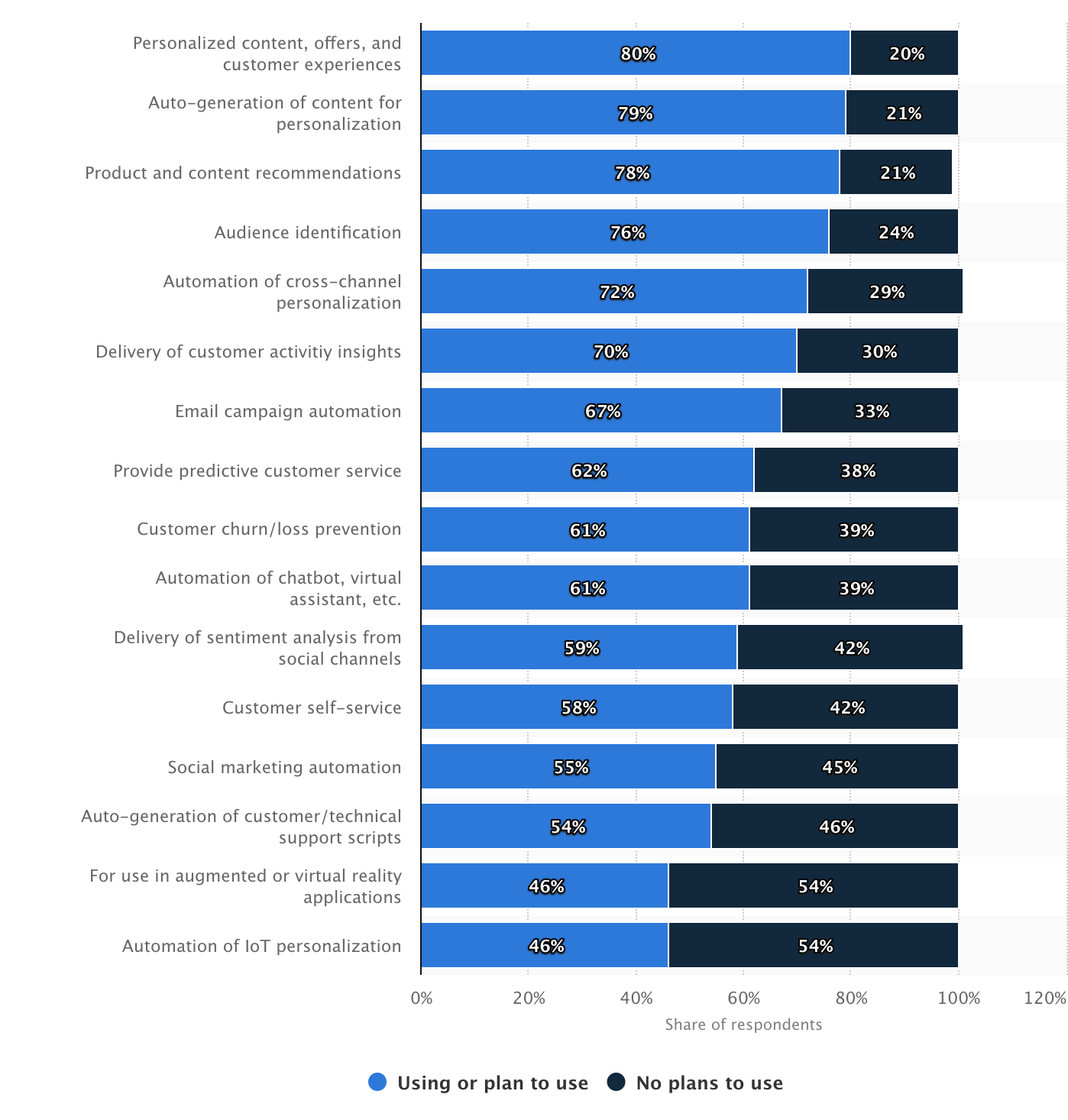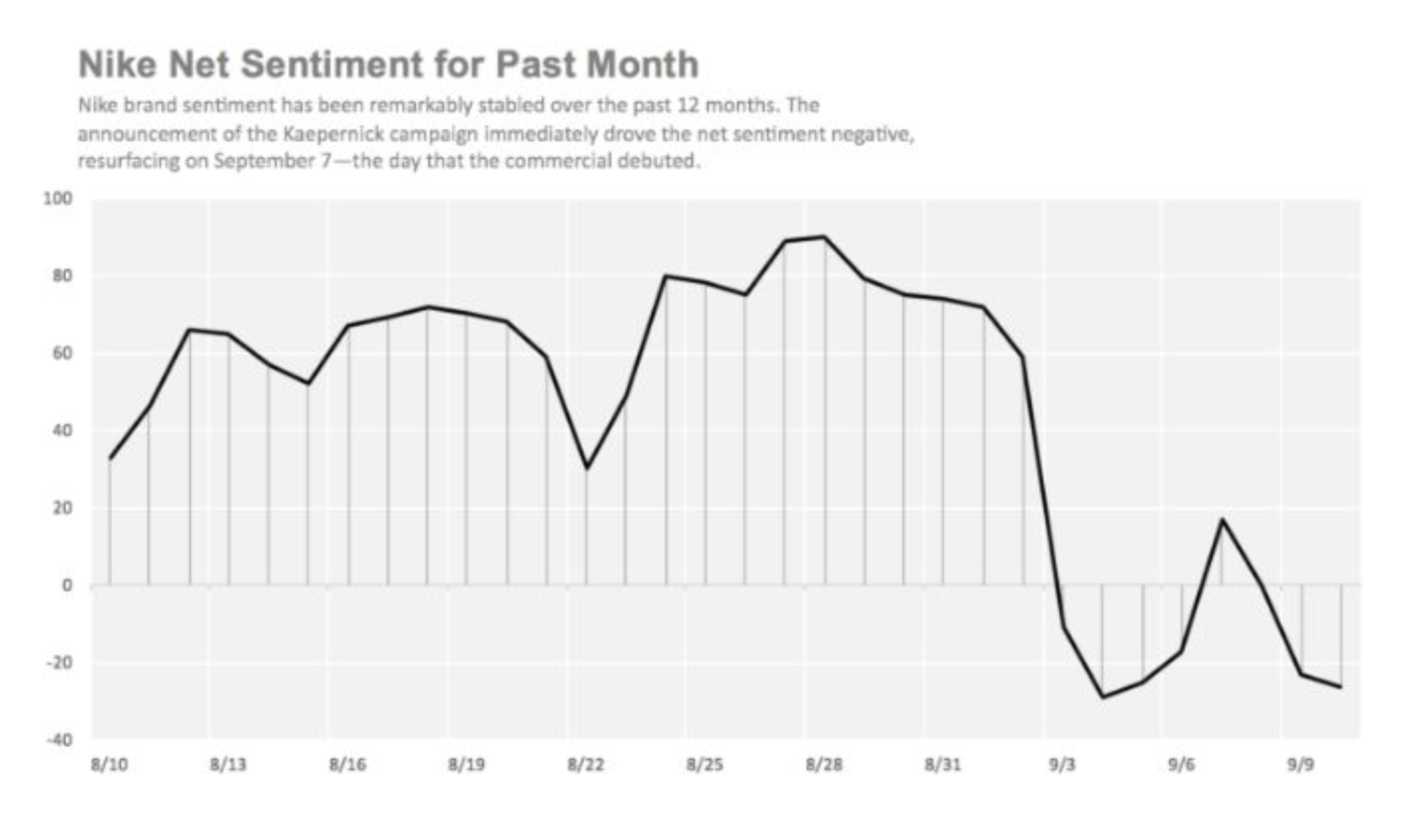Last week we discussed the importance of online reviews and their impact on your ecommerce success. We mentioned that reviews - especially in written form - give valuable feedback on experiences, and deliver context on important opinions. But the power of the word doesn’t end there! Now we’d like to get into the more intricate side of understanding your consumers’ words: the sentiment analysis.
Sentiment analysis, or ‘opinion mining’ as some call it, uses natural language processing, text analysis and computational linguistics to gain in-depth knowledge on what your consumers are really saying. The structure of language is already highly complicated, so it’s no doubt that sentiment analysis is too.
The aim of this article is to introduce you to the basic principles of it so that you can start preparing your business for future plans. According to a 2018 statistic, 59% of industry professionals worldwide already use or want to start using this structured procedure as part of their marketing strategy – so you might want to look into it too.
Also, don't forget, here at Eastside Co we have a team of marketing specialists covering everything from PPC and social media, to SEO and email marketing. Check out our full range of marketing services.
Adoption of AI in marketing personalisation

As you can see, a substantial number of experts are steadfast that machine learning and deep learning are fundamental to business growth today. It’s in your best interest to find out exactly how you can use the transformational capabilities of artificial intelligence and data mining to grow your business.
Where do you gather this sentiment?
Virtually anywhere on a digital space where user-generated text is delivered publicly. Social media channels (Instagram, Facebook, YouTube, Twitter and LinkedIn) are an excellent place to start because of the magnitude of ongoing conversation between audiences.
But they’re not the only places where you can attain measurable data. You should also be analysing online forums and review websites like Reddit, Quora, Amazon Review, TripAdvisor or Trustpilot. On top of that you can also extract information from chatbot conversations on your website.
Lastly, you can also look at the engagement happening on your own blog, on industry-specific and corporate blogs, or online newspapers.
While you’re thinking about all of this, don’t forget about your competitors. Understanding the conversations that occur between consumers on their platforms will also yield highly valuable insight on your own target audience.
What is sentiment analysis good for?
Your main goal is putting your focus back onto your audience and listening to how they feel. A sentiment analysis lets you do exactly that, because with it you can recognise and capture the real voice of your consumers. It’s a key business tool that lets you shape unstructured data into valuable, tangible feedback.
You will also find that it can help you take control of these crucial areas:
- Monitor social media in order to observe brand reputation and maintain brand health. Think of sentiment analysis as your own personal detective, listening to and observing all the online channels that your brand can’t always keep up with.
- Identify and take advantage of arising trends and patterns.
- Enhance products based on consumer needs.
- Analyse product satisfaction by understanding the motivation behind positive, negative and neutral feelings.
- Manage risks by identifying a potential crisis before it manifests itself.
- Create viral content that resonates with your audience through guided content ideation.
- Measure the ROI of your marketing campaign with better accuracy and then use the insight to boost performance on future launches, events and campaigns.
- Find valuable brand influencers that can boost positive resonance.
- Improve customer service and support tactics.
- Understand voice of employee in real-time by discovering and responding to concerns.
- Discover and use market research to help drive effective business decisions.
Sentiment analysis is a complex technology to master, so inevitably there’s a vast majority of outcomes you can expect. How you’ll end up applying this practice depends on the kind of industry you’re in, the size of your company and its audience, and most importantly on your available data resources. When you do take the first steps into sentiment analysis, make sure you start your journey with a few well-defined questions - but remain open to finding many different, sometimes unexpected answers.
How does sentiment analysis work?
According to MonkeyLearn, there are four levels of sentiment analysis that tools and systems focus on:
-
Fine-grained sentiment analysis identifies the level of polarity in text. It labels words on a scale from very negative to very positive, almost in the same way that a star rating works on a review.
-
A lexicon analysis helps perform emotion detection by identifying words that express specific feelings such as happiness, excitement, anger or frustration.
-
Aspect-based sentiment analysis breaks text down into attributes or components in order to understand which specific features of a product are being discussed.
-
Intent recognition looks at the motive behind text within a given context.
There are two main approaches for these four levels of sentiment analysis.
The rule-based approach
The rule-based approach is a system that performs sentiment analysis based on a set of manually crafted rules. Some of the natural language processing techniques that a rule-based approach follows includes parsing, parts of speech tagging, tokenisation and stemming.
However, this approach is only good for sentence-level tasks and query analysis. It’s an exhaustive approach that needs meticulous maintenance from experts and skilled linguists in order to show accurate results. Even then, the system does not take complex language variations and sequence combinations into account.
The automatic approach
Teaching a machine to analyse any language is tricky. Think of the cultural variations in English alone, along with all its grammatical nuances, dialects and slang. Supervised machine learning techniques such as Naïve Bayes, Support Vector Machine and Maximum Entropy are most useful techniques for the sentiment classification (categorising text into positive, negative or neutral categories etc).
We’re not going into detail on these algorithms or how they work though, because we’ll end up talking about something that looks more or less like this:

And you don’t need to understand any of that – not right now at least. Sentiment analysis tools, systems and software use Artificial Intelligence to take care of these bewildering formulas, models and structures.
The most important thing that we want you to know is that through technological advancement and ongoing data mining, machine learning algorithms have learnt to adapt to congruity and pattern, and so learn how to extract meaning from context. Deep learning solves even more challenging natural language processing problems, and can stimulate higher cognitive functions of the human brain. It’s through deep learning that sentiment analysis becomes highly accurate, as it can understand language patterns and determine tone, emotion, humour, sarcasm and irony.

Why sentiment analysis drives ecommerce success
When your online store grows and your marketing campaigns are thriving, you’ll expect your social platforms’ engagement to skyrocket too! Or maybe your brand reputation faced a hiccup, and you need answers fast.
When you’re reaching consumers by the hundreds of thousands, who is going to trawl through every strand of this content and leverage its insight to the fullest? Only a machine! It’s a mountainous task and quite frankly it’s too tedious, time-consuming and subjective for any human to handle. You need sentiment analysis to process large amounts of online data from numerous sources automatically and accurately.
More importantly, sentiment analysis can help you sift through bulks of old, unhelpful or irrelevant data to find the new information that will help drive business decisions and actually prove good ROI. For example, in 2018 Nike ran a campaign involving an American star that the public was not very enamoured with. As a result, their net sentiment plummeted over a period of 12 months.

Looks pretty bad, right? Wrong. In fact, Nike was being really smart. They wanted to reach out to a new, younger demographic and took this risk because it meant creating brand loyalty among younger consumers. They knew there would be some noise around their decision, but were very careful to consider the ‘silent voices’ of new and curious consumers. As a result, this campaign saw Nike reach an overall sales jump of over 31%!
There is an overload of evidence that sentiment analysis has helped big ecommerce sites across the world increase conversions, over and above improving brand awareness and reputation. According to Aspectiva, ecommerce stores that take advantage of this powerful strategy can see up to 30% increase in ‘add to basket’ clicks, and a significant increase in time spent on page.
By putting the intricate methodologies of sentiment analysis to use, you can get the right information you need to:
- Support shoppers in their product research stage.
- Prioritise and streamline customer support to improve user experience and customer satisfaction.
- Enhance customer journey from discovery to purchase.
- Understand and track behavioural trends and monitor consumer purchase intent via sales funnels.
- Make campaign and sale adjustments according to real-time data.
- Gain a competitive edge with valuable business intelligence and competitor knowledge.
- Spot emerging trends and discover newer markets.
- Engage with your audience through relevant topics that potentially drive consumers to your website.
- Turn audience opinions into actionable recommendations on product pages.
- Adapt to product development according to specific user needs.
What you should do now
As New York Times bestselling author John Naisbitt says – “We are drowning in information, but we are starved for knowledge.” It’s time to explore your untapped data and turn new information into the knowledge that will lead your company to optimal growth.
Invest in state-of-the art IT and proper analytics infrastructure. Explore the variety of leading AI-powered sentiment analysis tools like MonkeyLearn, Aspectiva, SocialBakers and TalkWater. Try free demos and contact their support teams to find out more about the full extent of their offerings. And most importantly, get in touch with us so that we can help you kickstart your journey of explosive marketing and ecommerce success.



